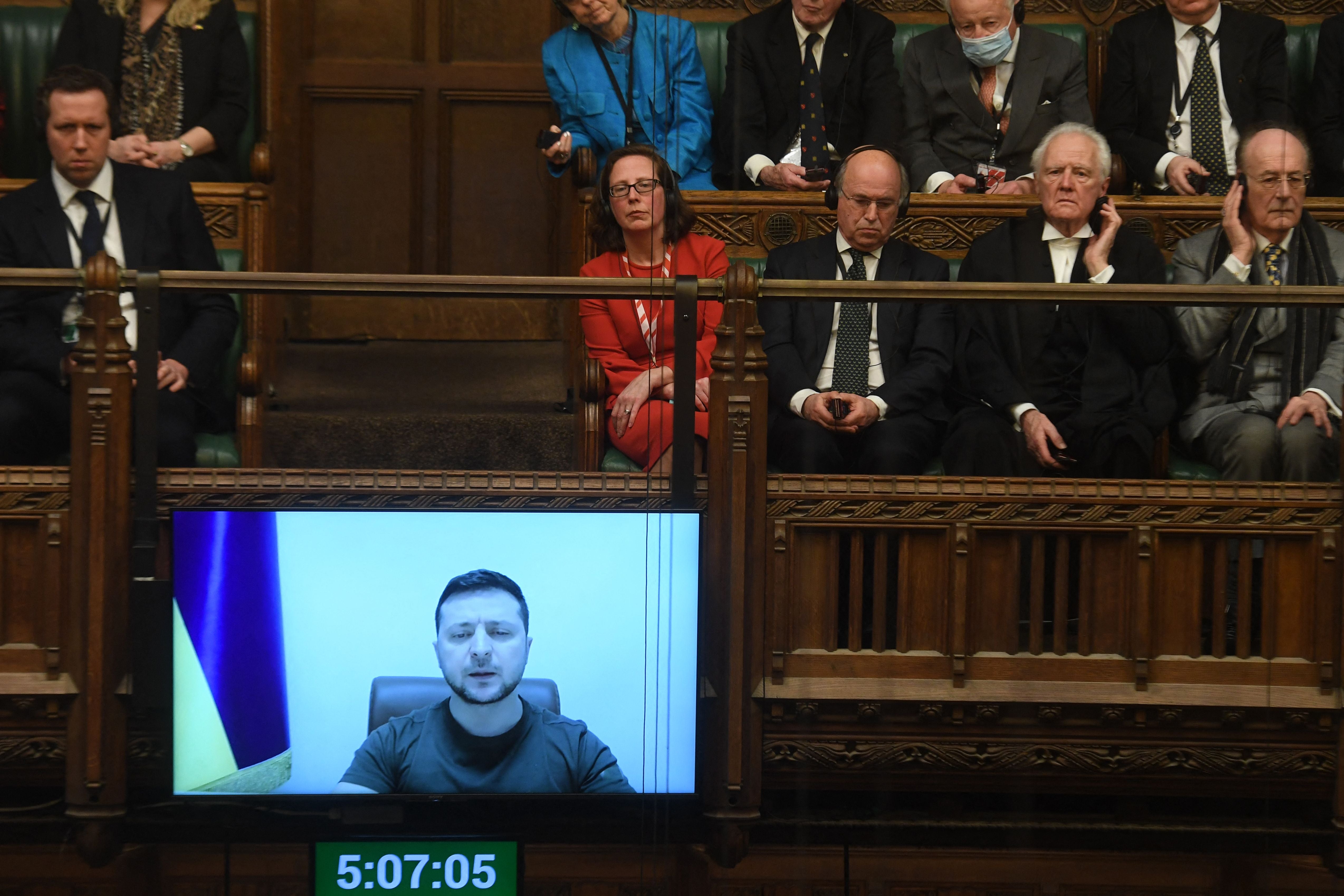War in Europe came to the chamber of the House of Commons
Ukraine’s president, Volodymyr Zelensky, became the first ‘stranger’ to speak in the MPs’ chamber, writes John Rentoul


Volodymyr Zelensky made history, not by being the first “stranger” to speak in the Commons chamber, but by appealing directly to the UK parliament to step up its aid to an ally in a European war.
The echoes of past wars were unmistakable and quite deliberate. “We did not want this war,” the Ukrainian president told MPs. “We do not want to lose what is ours, our country, Ukraine, in just the same way you once didn’t want to lose your country when Nazis started to fight your country.”
Zelensky deliberately paraphrased Winston Churchill: “We will not give up and we will not lose. We will fight until the end, at sea, in the air. We will continue fighting for our land whatever the cost. We will fight in the forests, in the fields, on the shores, in the streets.”
He quoted William Shakespeare, saying Ukraine has decided “to be”. And he appealed personally to Boris Johnson, his fellow admirer of both Churchill and Shakespeare: “I am very grateful to you, Boris. Please make sure our Ukrainian skies are safe. Please make sure you do what needs to be done, and what is demanded by the greatness of your country.”
That was a tactful way of referring to his repeated appeal to Ukraine’s allies to impose a no-fly zone over Ukraine. This time, Zelensky didn’t repeat his bitter corollary, that those who refused to protect his country from the skies would be responsible for the deaths of Ukrainians.
Pedantically, the Ukrainian president was not taking part in a proceeding of the UK parliament, as the session was suspended so that MPs could listen to him. His speech was not on the order paper of today’s business. But it was the first time a “stranger” – someone who is neither an MP nor an official of parliament – has spoken in the Commons chamber with MPs in it.
Usually, foreign leaders who are granted the honour of addressing parliament speak in Westminster Hall, not least because it has the space to accommodate members of both the Commons and the House of Lords. But the coronavirus restrictions forced changes in the way parliament worked, and made possible what would previously have been unthinkable: a speech beamed into the chamber by video link.
The result was historic, but the real sense of occasion came from the seriousness of a war for national survival in Europe.
To keep up to speed with all the latest opinions and comment, sign up to our free weekly Voices Dispatches newsletter by clicking here
The prime minister responded to President Zelensky’s speech, as the parliamentary session quickly resumed, with as much solidarity as was compatible with refusing to impose a no-fly zone – given that the UK and other Nato members want to avoid getting into direct military conflict with Russia. Boris Johnson commented on the Second World War parallel, saying how remarkable it was to be addressed by Zelensky, from a “great European capital within the range of Russian guns”.
But the prime minister also invoked words from the Cold War, echoing President Kennedy’s speech in Berlin in 1963 by declaring: “Today, one of the proudest boasts in the free world is ‘I am a Ukrainian.’”
None of the parallels are exact in this war. It is a land war of conventional weapons on the continent of Europe, yet it is being fought in the shadow of nuclear deterrence, with Cold War adversaries ranged on either side.
But very visibly, it is a conflict over which the House of Commons is united. Johnson announced the latest British sanctions measure, of ending Russian oil imports by the end of this year. Keir Starmer said the Labour Party supported the “toughest sanctions that will cripple the Russian state”.
History was made today, but whether Ukraine’s allies can do enough to save the country from the agonies of a long war is still in doubt.






Join our commenting forum
Join thought-provoking conversations, follow other Independent readers and see their replies
Comments